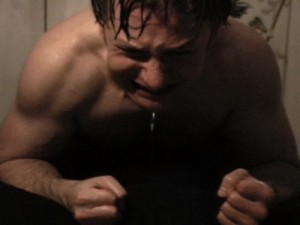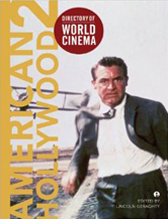
REVIEW: Flooding with Love for the Kid
At a time when popular culture is increasingly preoccupied with smug self-parody, ironic pastiche or cynical commercialism, Zachary Oberzan’s Flooding with Love for the Kid is something of a rarity; an earnest labour of love. And though his film mightn’t be the first to adapt First Blood (1972), David Morrell’s novel of a Vietnam veteran waging war on a small Kentucky town – Ted Kotcheff directed the 1982 version that starred Sylvester Stallone as Rambo – it may be the most unique. Oberzan shot, edited, and performed every role of the film, all within the confines of his Manhattan studio apartment.
While that description may conjure imagery of the type of low-budget homage recreations popularised by Michel Gondry’s Be Kind Rewind (2008), Flooding with Love for the Kid is no simple ‘swede’. Instead, Oberzan seems committed to exploring the serious drama at the centre of Morrell’s work, particularly the relationship between Rambo and the lawman obsessively pursuing him, Sheriff Teasle.
 First published before the end of the war, First Blood was remarkable for the way it used the plight of the returned vet to allegorise the bloody conflict of Vietnam on American soil. Despite their greater number and superior firepower, the state authorities in Morrell’s tale (like the US Military forces in South-East Asia), find themselves no match against an enemy (in this case one of their own) skilled in bloody guerrilla warfare.
First published before the end of the war, First Blood was remarkable for the way it used the plight of the returned vet to allegorise the bloody conflict of Vietnam on American soil. Despite their greater number and superior firepower, the state authorities in Morrell’s tale (like the US Military forces in South-East Asia), find themselves no match against an enemy (in this case one of their own) skilled in bloody guerrilla warfare.
But where Morrell depicted the Vietnam veteran as an excessive killing machine consumed by rage and resentment, Kotcheff’s film represented Rambo as a misunderstood hero, who only maims not murders. The character of Teasle also differs markedly in both versions. In Morrell’s tale he’s a distinguished veteran of the Korean War while in the film he’s basically an ignorant, corpulent red neck. It’s this aspect of Kotcheff’s First Blood that Oberzan appears most keen to rectify in his adaptation.
Echoing the novel’s construction of personal war, Flooding with Love for the Kid places a greater emphasis on Teasle’s character and the motivations behind his relentless pursuit of the troubled vet. The conflict that erupts between Teasle and Rambo is unmistakably generational, where the themes of guilt, betrayal and fears of waning authority are played out through the father-son identification that emerges across the narrative. That Oberzan performs both roles only adds to the sense of these men as mirrored masculinities.
 And it’s Oberzan’s performance of the two lead characters (particularly Teasle) that largely keeps the film grounded dramatically, even if the peripheral characters occasionally veer into comic territory. A camp cop, a Scottish-accented (?) state trooper and the fairly suspect portrayal of Rambo’s Vietnamese captors notwithstanding, Oberzan does a reasonable job of preventing the film sliding into farce.
And it’s Oberzan’s performance of the two lead characters (particularly Teasle) that largely keeps the film grounded dramatically, even if the peripheral characters occasionally veer into comic territory. A camp cop, a Scottish-accented (?) state trooper and the fairly suspect portrayal of Rambo’s Vietnamese captors notwithstanding, Oberzan does a reasonable job of preventing the film sliding into farce.
Perhaps more impressive though is the fact that despite making little to no effort to disguise his apartment surroundings, Oberzan transforms the residential space into a variety of ‘believable’ settings for his one-man war. An office chair doubles as a motorcycle, a running tap becomes a waterfall, a closet a cave and so on. It’s a testament to his creativity that he manages to keep things engaging for the majority of the film’s 107 minute running time.
Watching Oberzan’s film ultimately feels a lot like witnessing someone with no formal training pick up a musical instrument and through perseverance and sheer pluckiness alone, produce a recognisable tune. Flooding with Love for the Kid may be unpolished, but it has immense heart. I can think of numerous films that boast eight and nine figure budgets of which the same couldn’t be said.





RSS feed for comments on this post. TrackBack URI